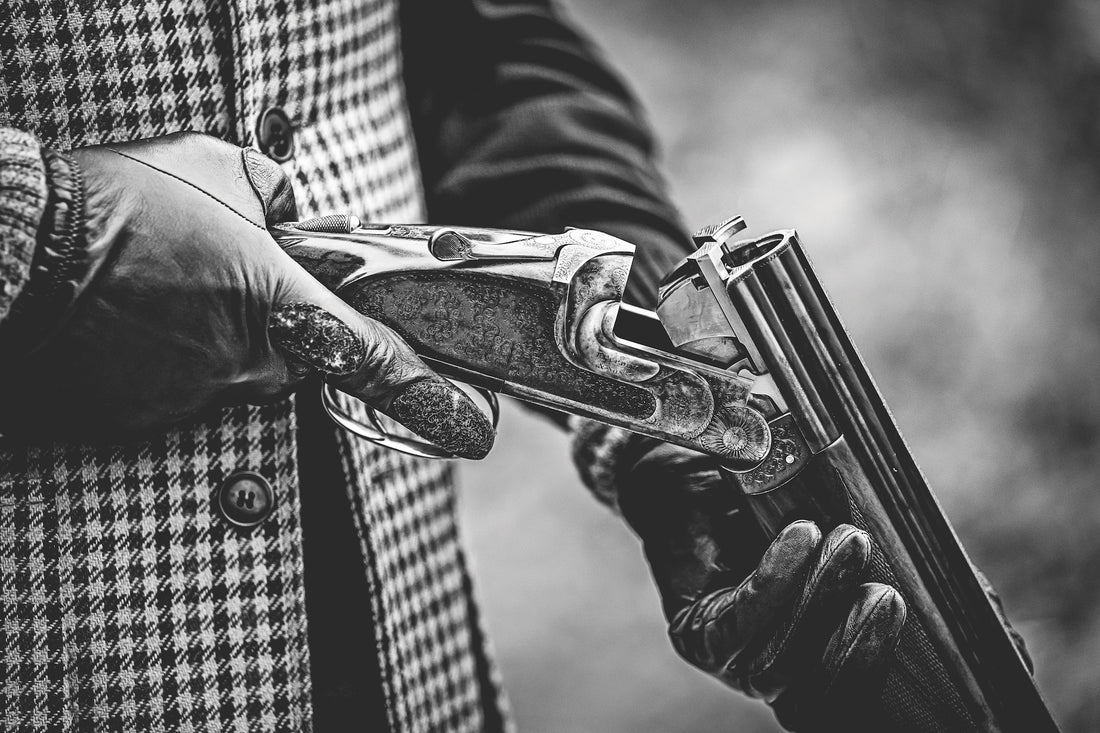Keen shot, writer and author of ‘In Search of One Last Song: Britain’s disappearing birds and the people trying to save them’, Patrick Galbraith is often found out in the field. Here, he heads down to Purdey at the Royal Berkshire to work on his technique with one of the best in the business, Steve Turner.
In truth my first outing of the season, a partridge day in Norfolk, was a bit of a curate’s egg. There was no wind and heavy fog but the keeper at Walsingham Estate, Simon Owen, is long enough in the tooth to show some brilliant birds even when the conditions are against him. Regrettably, though, I struggled to keep up my side of the bargain. It wasn’t that I was totally failing, but as my girlfriend’s father delighted in pointing out, I was killing almost everything with the second barrel. What I couldn’t work out was whether I was ahead of them with the first shot and then connecting when I slowed up, or whether I was behind them initially and then swinging through.
The following Monday I drove down to Purdey at the Royal Berkshire to face my demons. Unusually for me, I arrived early and took the opportunity to go for a wander with my young spaniel. I must admit that I’ve never found the Purdey ground to be a particularly easy day out — and I mean that in a good way. There are lots of places where the targets flatter your shooting. You leave feeling like King George V on a good day, but the following Saturday you’re still missing those long crossers. The targets at PRB are about as close to the real thing as you can get, and give you nowhere to hide.
I popped into the gunroom to have a quick chat with Alastair Phillips before meeting Steve Turner who would be giving me a lesson. Alastair has forgotten more about guns than I’ll ever know and it’s brilliant to be at a ground where you can try guns out before you buy. I chatted to him about wanting to get something a bit lighter and he’s currently putting his feelers out. Steve then joined us in the gunroom and we had a quick chat about what I wanted to work on before heading out into the rain.

I’m going to really offend some people by saying this, but there are lots of instructors out there, often jolly retirees who’ve done a course on instructing and who love their shooting, but are frankly useless when it comes to actually helping you become a better shot. Steve, it became abundantly clear from the off, is one of those rare coaches who really gets it. It isn’t just that he’s stood on a peg countless times on pheasant days — he’s done it all. He knows his ducks, he knows his pigeon shooting, and he knows his wild partridges. His treasure trove of theory is based on practical experience.
To kick off, he had me stand under a straight oncomer to assess where I was at. After six shots, he said that it was clear I’d done a fair bit of shooting, but he wanted me to “come into the target a bit tighter” — essentially he wanted more of a positive connection and for me to shoot more deliberately. The four birds that followed this advice turned to dust, and we then moved on to crossers. I explained to Steve that the previous weekend, I’d been “second barreling everything” and he told me that the problem was obvious. As noted earlier, I was starting a long way behind birds, swinging for too long, then checking my swing, before shooting them much more fluidly with the second barrel. Again, his guidance was spot on. The right to left crossers that followed felt easy, and Steve then had me shooting the bird with my first barrel before shooting a clay fragment with my second – it’s a trick that does wonders for shooting positively.

Like most people, I don’t enjoy missing, but it happens. What I found really interesting about Steve was how convincing he was when he told me it wasn't a problem, and to simply move on to the next shot. I often end up in a mire of misery when I start missing, but he had me cheerily reverting back to basics to start getting it right again. Great teachers, I always think, are able to make you believe in yourself, which is half the battle.
The sky cleared as we wandered back to the clubhouse for a cup of coffee. “The thing is,” I said to Steve, “you wouldn’t just pick up a tennis racket and expect to be able to play well, but so many people don’t bother with lessons and practice when it comes to shooting.” When he was away getting the coffees, my pigeon shooting mate, Tom Payne, a veteran instructor himself, replied to a text I’d sent earlier. “Steve Turner?”, the text read, “he’s one of the best. I’d say that as game shooting instructors go, he’s properly up there.” Tom always says it how it is and he was right, Steve has a gift.
Get in touch to book tuition with Steve Turner, or any of our other instructors at Purdey at the Royal Berkshire
